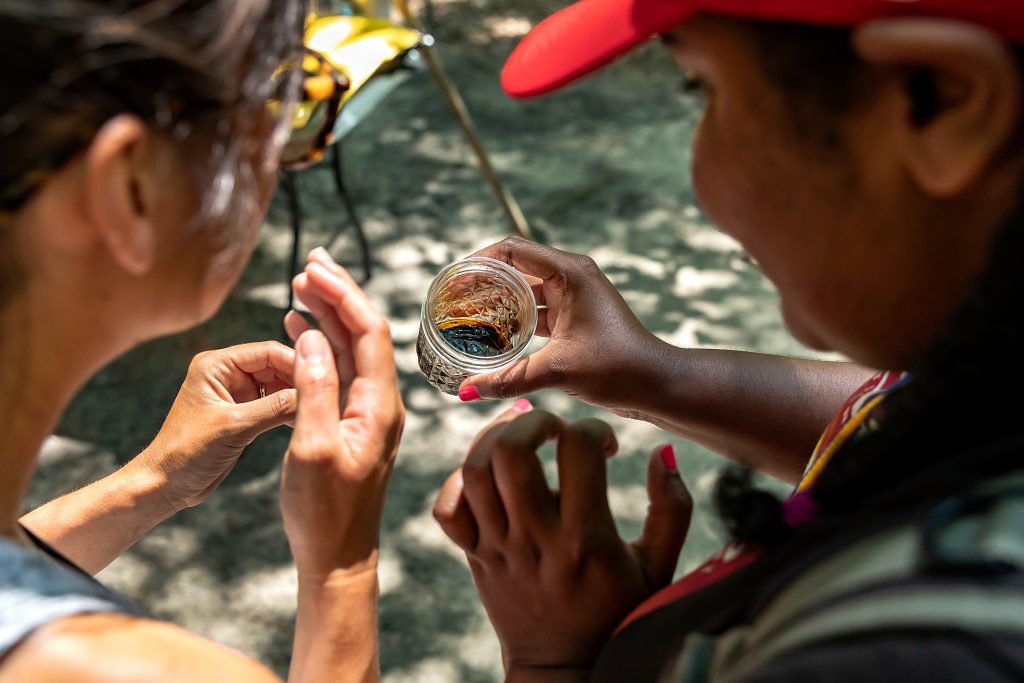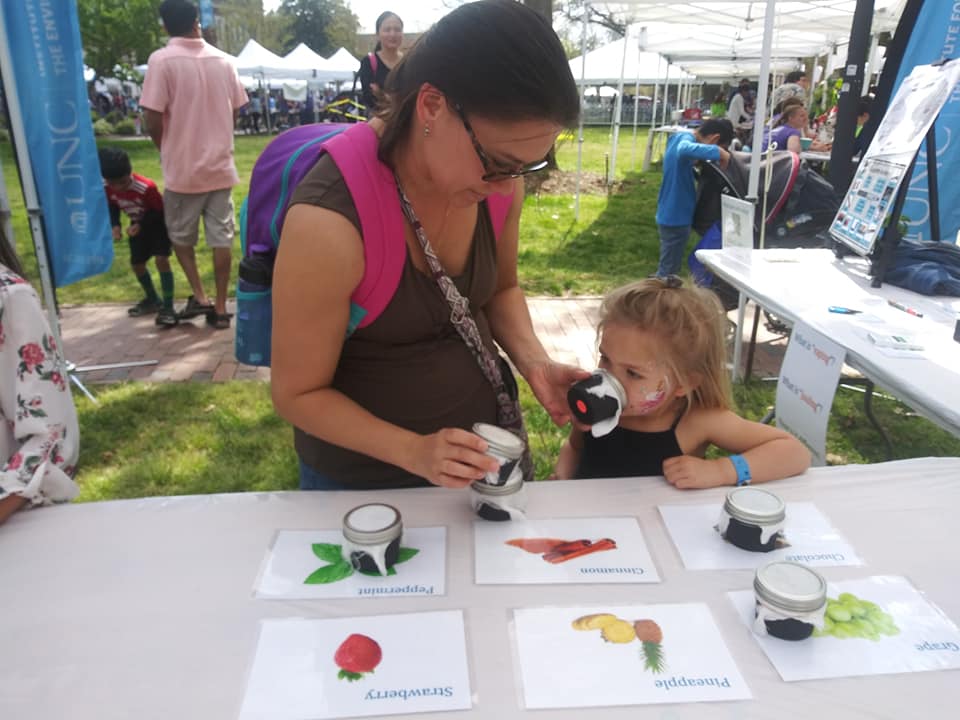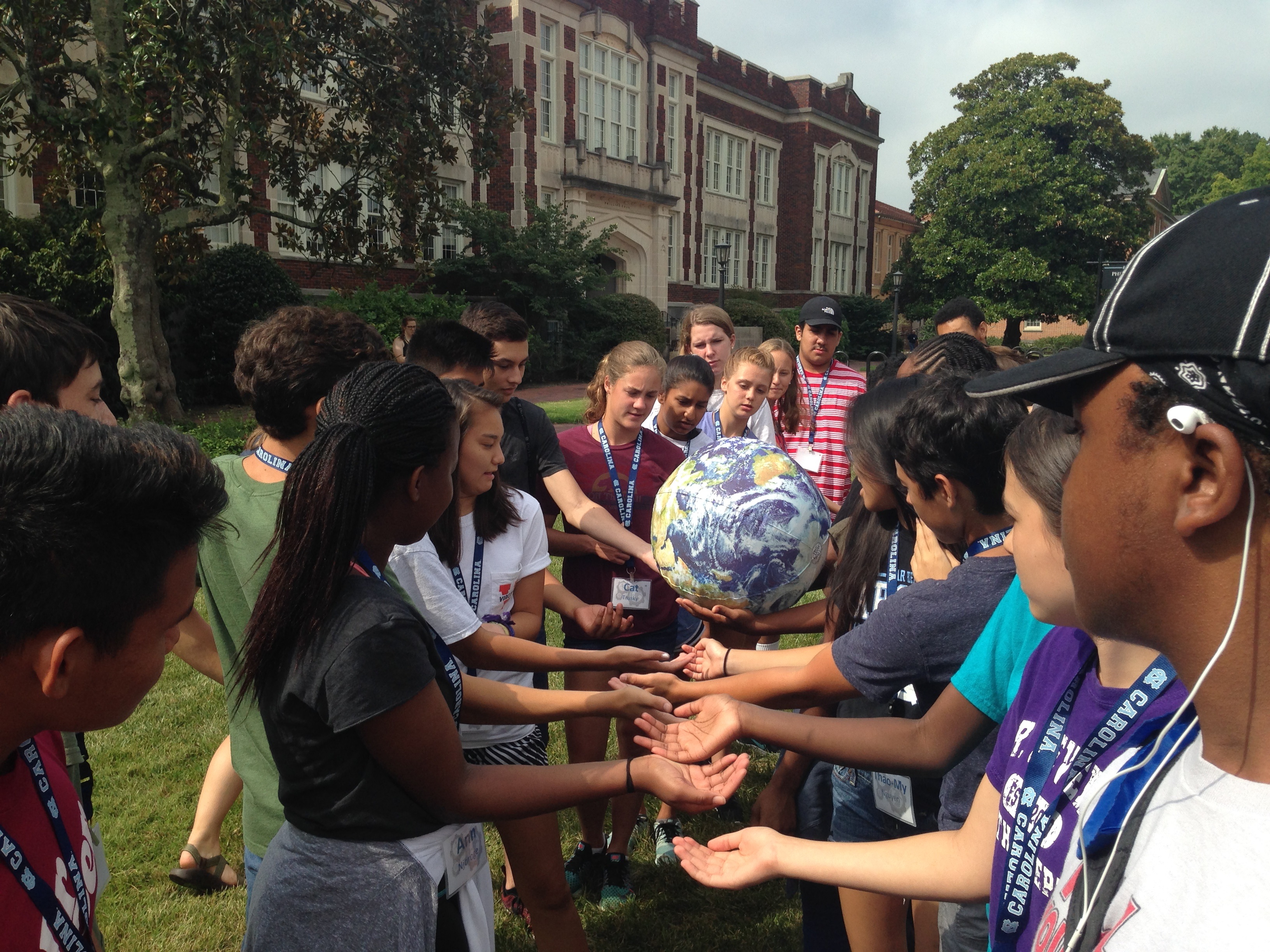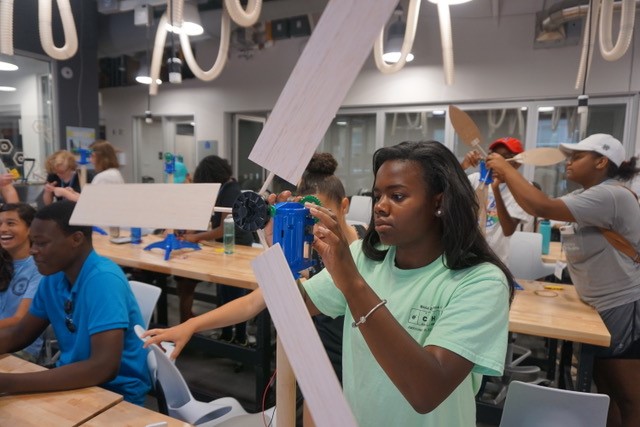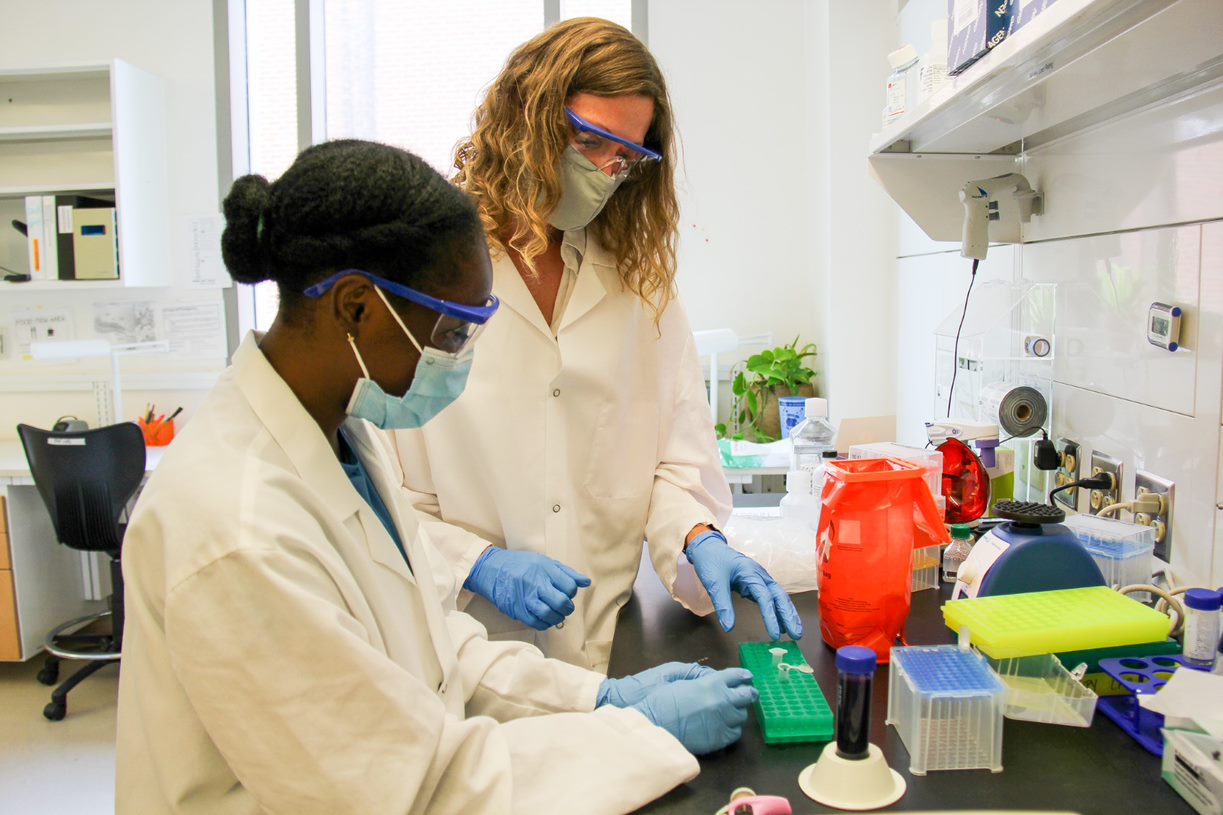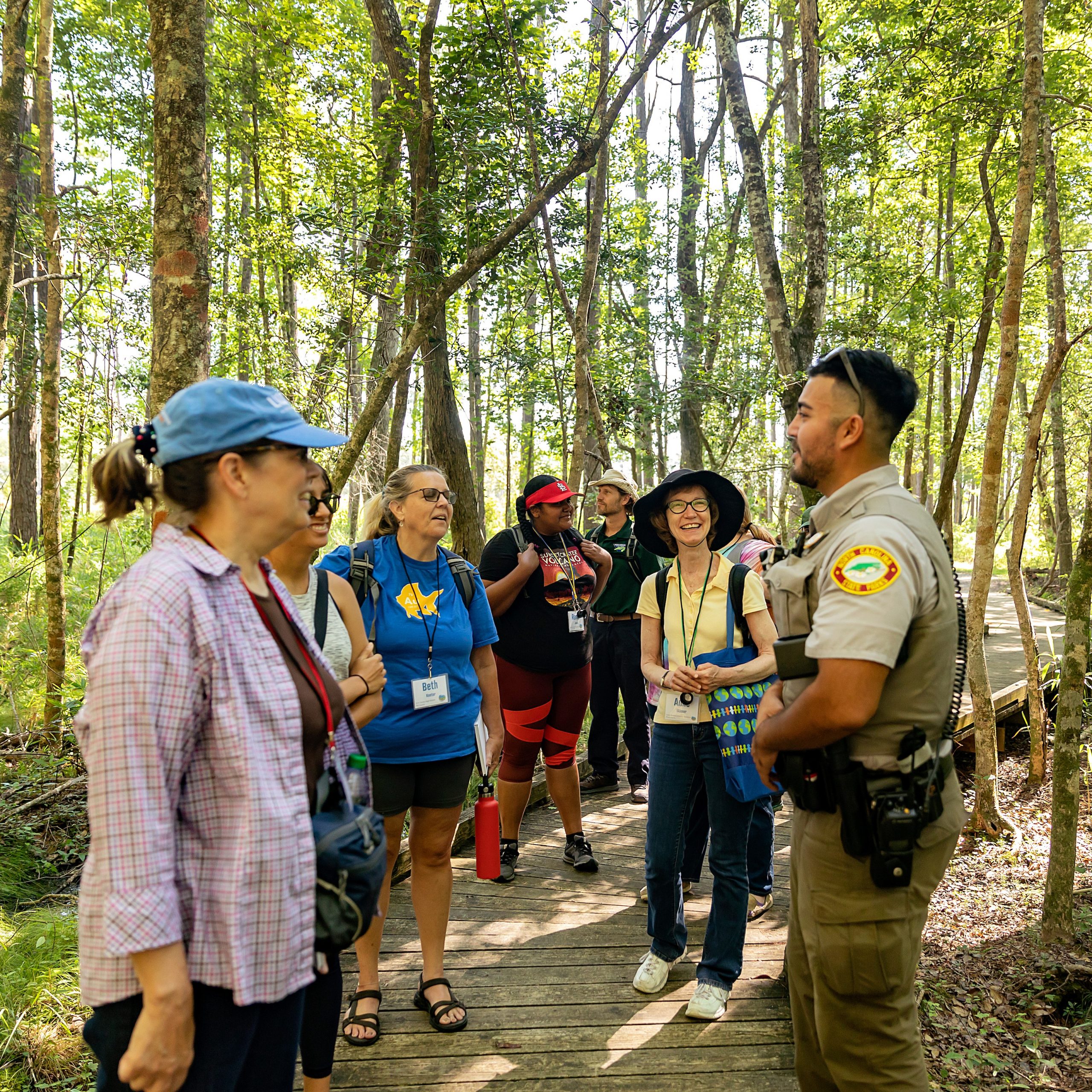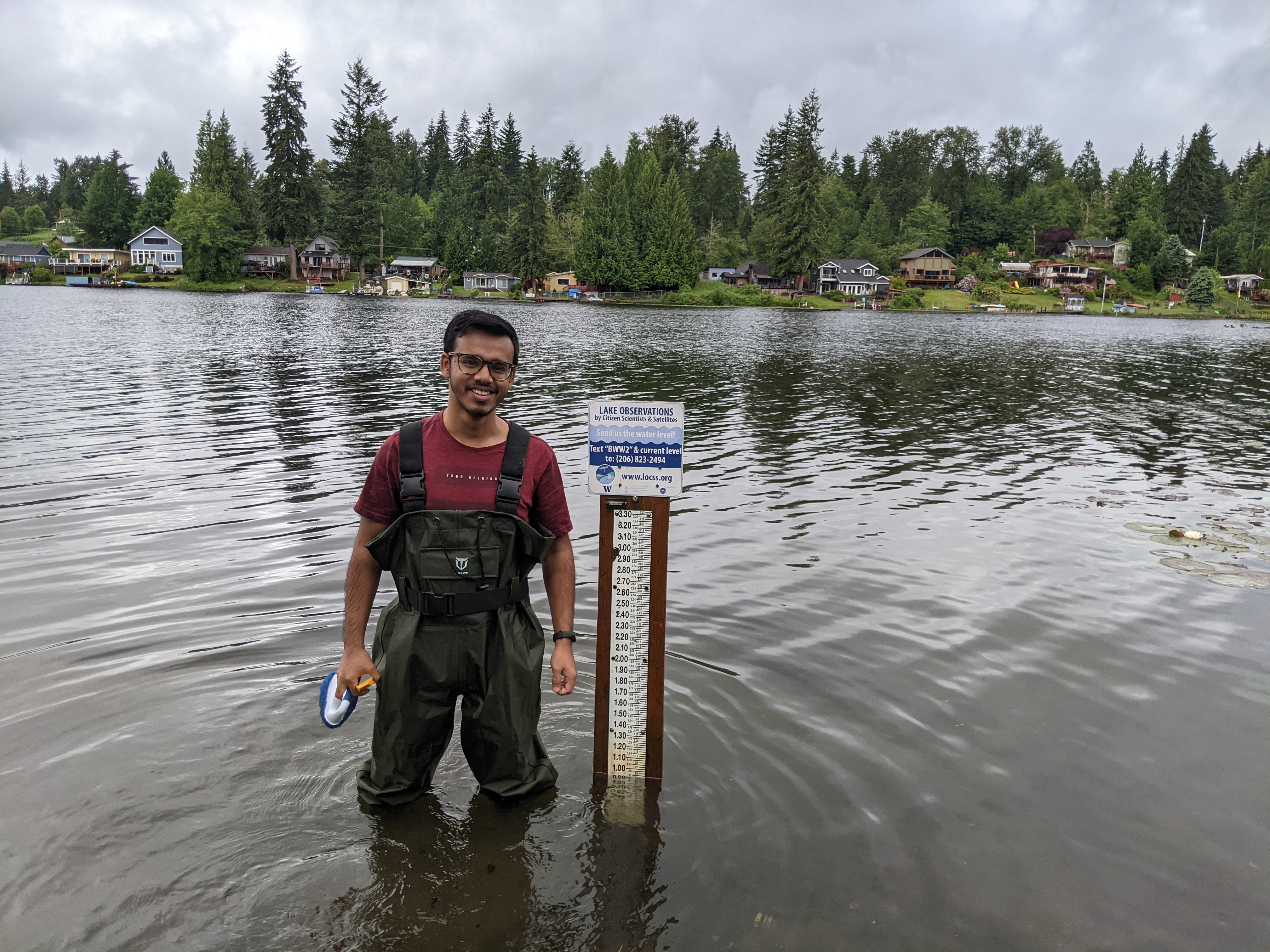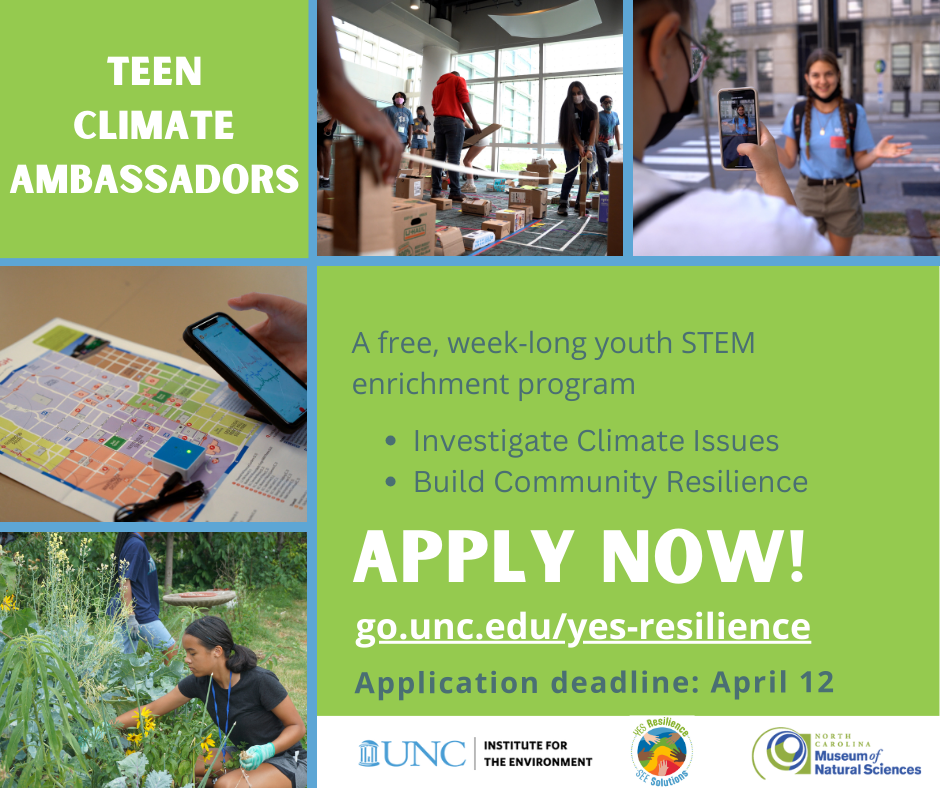Center for Public Engagement with Science
The Center for Public Engagement with Science (CPES) partners with environmental faculty across campus to translate environmental knowledge and research results into action in North Carolina communities and beyond. Through informal science education, science communication, and community engagement initiatives, the CPES enhances public understanding of current environmental science and health research and its relevance to daily life, empowering North Carolinians to make informed decisions that protect the environment and public health.
Focus Areas
CPES serves as a campus-wide resource in five key areas: community and stakeholder engagement, K-12 environmental science education, pathways into STEM, experiential education for undergraduates and community/citizen science.
Featured Project – YES Resilience: SEE Solutions
Now accepting applications for Teen Climate Ambassadors, part of the YES Resilience: SEE Solutions project. This youth STEM enrichment summer program, hosted by the North Carolina Museum of Natural Sciences in Raleigh, NC, engages 9th-12th graders in hands-on activities using cutting-edge science and technology to explore climate impacts and solutions in their communities.
Learn MoreLatest News
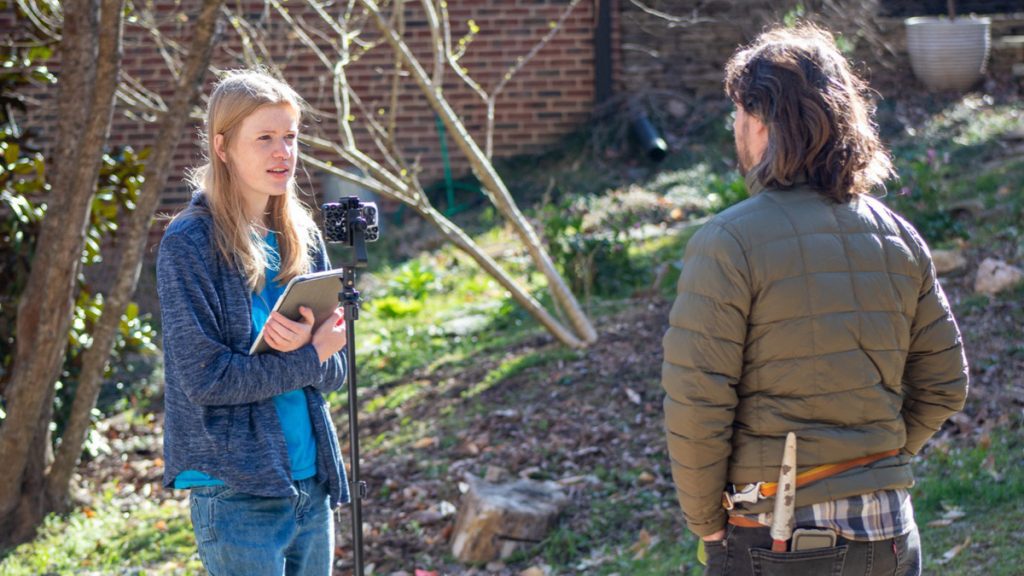
EcoStudio matches Tar Heels with internships (UNC.edu | Apr. 11, 2024)
Since 2018, the program has helped 466 students explore careers in environment and sustainability.
Read More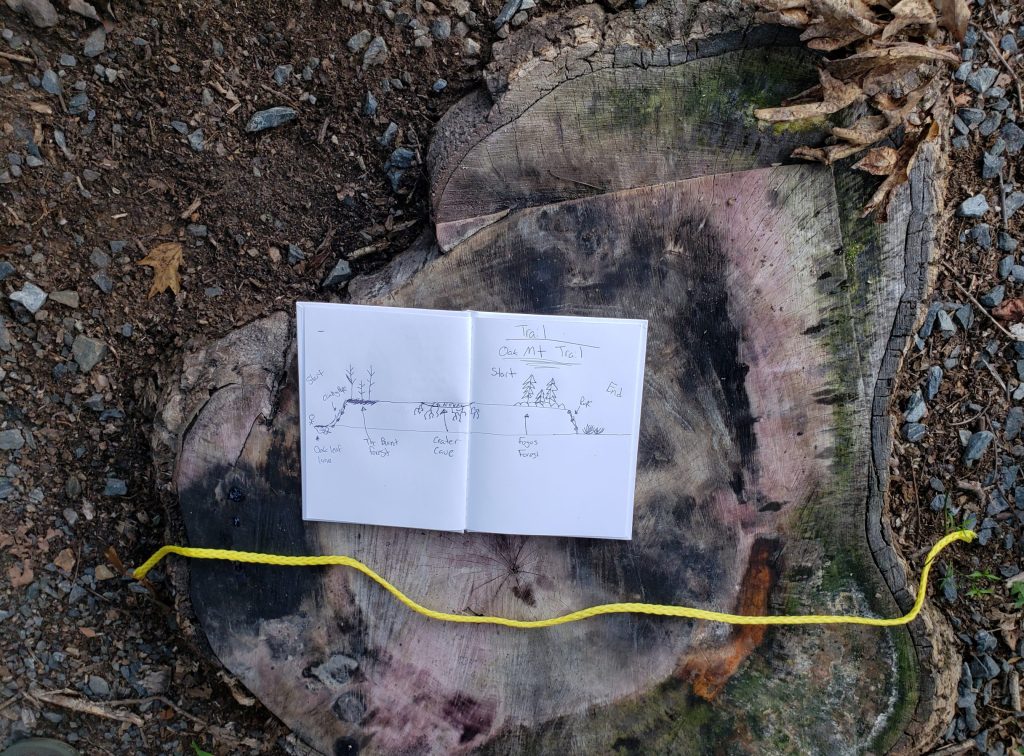
IE program brings N.C. students and teachers into state parks for meaningful outdoor science learning
N.C. teachers and park rangers create outdoor learning experiences for students.
Read More
